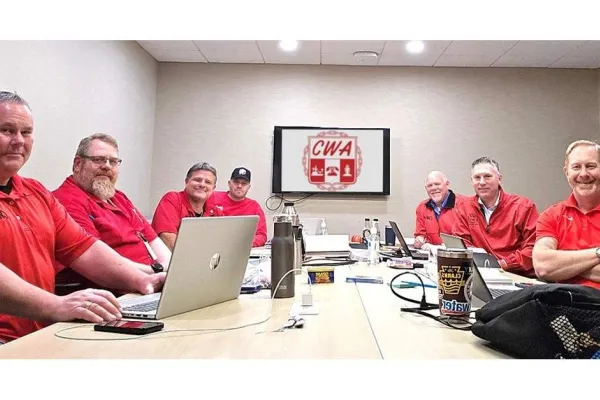May 25
Pressured by employers, striking shoemakers in Philadelphia are arrested and charged with criminal conspiracy for violating an English common law that bars schemes aimed at forcing wage increases. The strike was broken - 1805
Philip Murray is born in Scotland. He went on to emigrate to the U.S., become founder and first president of the United Steelworkers of America, and head of the Congress of Industrial Organizations (CIO) from 1940 until his death in 1952 - 1886
Two company houses occupied by non-union coal miners were blown up and destroyed during a strike against the Glendale Gas & Coal Co. in Wheeling, W. Va. - 1925
Thousands of unemployed WWI veterans arrive in Washington, D.C. to demand a bonus they had been promised but never received. They built a shantytown
near the U.S. Capitol but were burned out by U.S. troops after two months - 1932
The notorious 11-month Remington Rand strike begins. The strike spawned the "Mohawk Valley (NY) formula," described by investigators as a corporate plan
to discredit union leaders, frighten the public with the threat of violence, employ thugs to beat up strikers, and other tactics. The National Labor Relations Board termed the formula "a battle plan for industrial war." - 1936
The AFL-CIO begins what is to become an unsuccessful campaign for a 35-hour workweek, with the goal of reducing unemployment. Earlier tries by organized
labor for 32- or 35-hour weeks also failed - 1962
More info & ammo for unionists is available
online from Union Communication Services.
🚨🟠📢 CWA / AT&T 2026 “Orange” Mobility Contract Bargaining Report #9 📢🟠🚨

